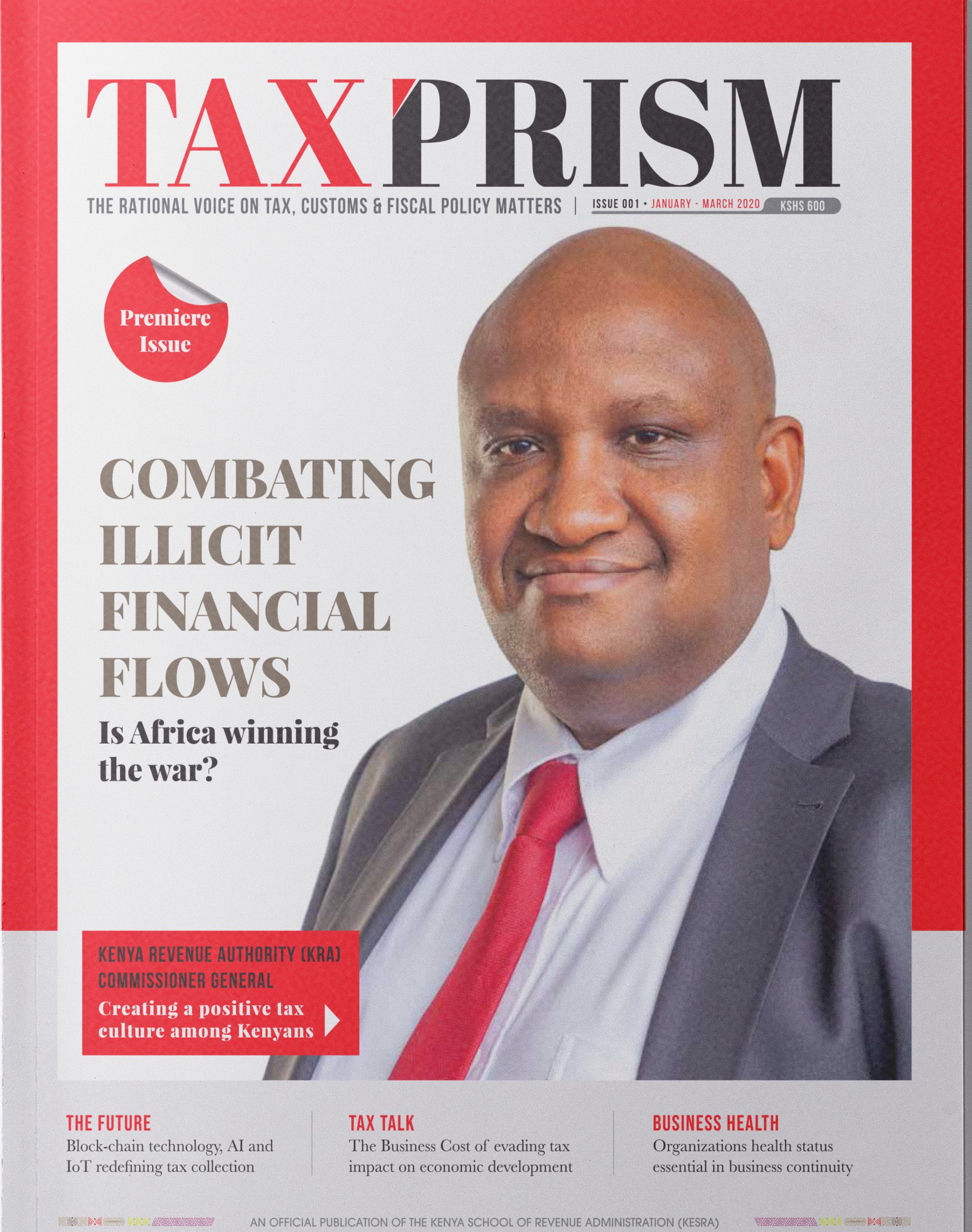Author: Githii Mburu – Commissioner General, Kenya Revenue Authority.
Tax and fnancial crimes continue to deplete national capital pools across the world with African countries perhaps taking the most beating. This category of crime, which is also the main cause of what is commonly referred to as Illicit Financial Flows (IFFs) is conducted largely via technological platforms which are increasingly becoming more complex, hence making tracking down of criminals within this space or even determining actual sums of money lost through illicit transactions a lot more problematic.
Findings indicate a clear link between IFFs and tax evasion, especially in the realm of international business. In this regard, unscrupulous individuals and businesses, both at the local and international levels, have perfected the art of evading taxes through acts such as manipulating fling returns, withholding payable taxes, dodging custom duties and domestic levies amongst others. By evading taxes crooked companies are able to raise their proftability or cost components and the money so gained is repatriated across national boundaries. Of course there are other criminal activities that are not directly related to tax such as forgery, human trafcking and money laundering that also bear on IFFs. However, the cartels that operate within this space are largely interconnected and multifaceted with many of them working closely with corrupt public servants to aid these vices. As complex webs of transactions are woven and huge sums of illegally earned money is transacted across borders, African Nations continue to wallow in poverty. As a result, school going children are unable to attend schools, millions continue to die as a result of hitherto curable diseases and national infrastructure projects continue to sufer, resultantly muzzling trade and economic development.
However, the good news is that conversations on ways of stemming IFFs are being amplifed across government and non-government agencies across jurisdictions and investigative eforts are taking traction across the globe. Information sharing among investigators across Nations is being nurtured and multi-agency teams are being formed to inject new life into investigative processes. This is not to say that enough is being done. Certainly a lot more can be done, especially with regard to collaborative investigations and deeper and more structured information sharing initiatives. Investigators must also widen their nets to cover even the more complicated aspects of these crimes including corruption-related criminal activities, abuse of transfer pricing provisions, trade mis-invoicing and aggressive tax planning which leads to tax evasion, among others.
Of course understanding the nature of tax evasion and IFFs is key to the furtherance of the efort to stem, or at least reduce capital fight from Africa. Several elements have supported the mutation of systems that give rise to tax and fnancial crimes and these include poor governance, existence of tax havens, some of which silently support aggressive tax planning, weak policy and regulatory structures, systemized corruption and lack of technical capacity, among others. It is noteworthy that technology-supported crimes are both fuid and evolutionary. To succeed in this war our eforts must also be fuid and evolutionary. We must therefore sharpen our focus on the drivers and enablers of these illegal activities and deal with them decisively. The eforts employed to stem these crimes must take cognizance of the pattern of crime. If crimes are conducted online, then we must build capacity to conduct technology-based investigations. These crimes must also be fought from all angles. The right policies must be enacted, technologies developed, personnel trained, data sharing platforms developed and investigative eforts executed ruthlessly with the view of bringing tax evaders and other criminals whose activities lead to IFFs to book. Jurisdictional agencies must not only work together to investigate, expose crime and punish criminals but they must also put in place deterrents to dis-incentivize these types of crimes. As the war against tax crimes and IFFs intensifes we must engage in deeper and more constructive conversations both internally and externally. Public as well and private organizations must play their rightful role towards this end. Financial institutions must thoroughly vet transactions, immigration departments must thoroughly scrutinize travellers, uniformed agencies and Customs administrations must ensure that border points are well sealed, National ICT agencies must sieve and fag out suspect online dealings, Parliaments must quickly enact relevant laws,
Courts of law must justly expedite tax and other related cases and the public must blow whistles when they come across crime. In essence everyone has a role to play.
At the Kenya Revenue Authority, no effort shall be spared to ensure that tax cheats and criminals who occasion tax evasion and IFFs arebrought to book. The Authority has beefed up her investigative capacity and invested heavily in technology and staff capacity. We are activemembers of the national Multi-agency team mandated to fight these crimes and together with our partners we are actively building networksthrough which we share information across agencies and jurisdictions whenever we unearth them.
KRA has also scaled up prosecution of tax evaders and we are in the process of sealing internal and external loopholes that criminals use to rob the tax payer. We are in the process of implementing a whistle blower arrangement that shall expose criminals but also protect whistle- blowerswho mean well for this Country. At the heart of this war is our undivided focus to raise public revenue, protect our markets and facilitate trade.
In conclusion, the war on tax and financial crimes must be stepped-up across the Continent. We must pool resources and make it impossible for criminals to operate safely in Africa. We must exchange data and act on each other’s behalf within harmonized legal frameworks. We must win the war on IFFs. Only then shall we guarantee our children good education, the patients in our hospitals good medical care, commuters good roads, railways and ports, and all citizens security and enhanced welfare.

